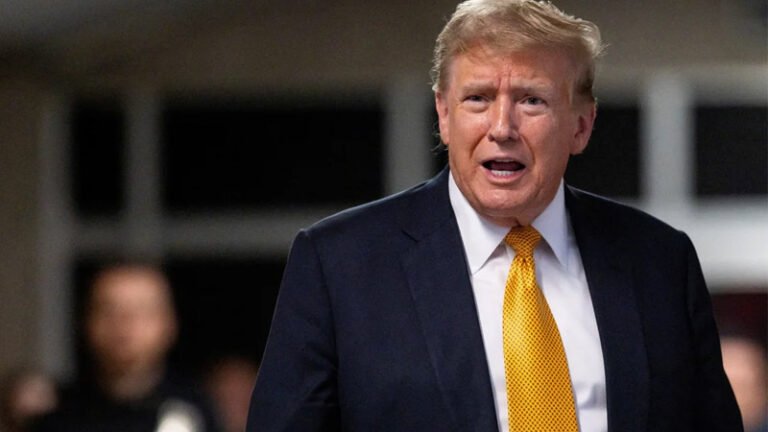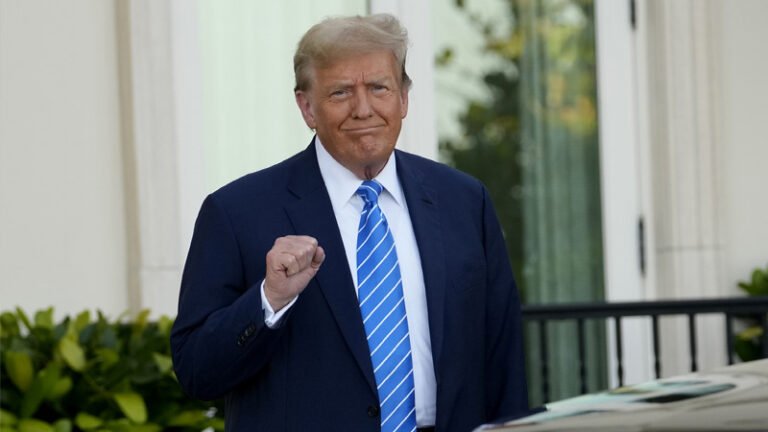When Donald Trump took the stage at a CNN town hall in Manchester, New Hampshire, a year ago, his supporters’ enthusiastic reactions overwhelmed the moderator and effectively took control of the event.
President Joe Biden’s advisers took note and decided that if Biden ever faced Trump on a debate stage, they would ensure there was no audience to influence the proceedings.
This became part of Biden’s reelection campaign’s debate proposal to Trump this week, suggesting two general election debates in June and September. Biden’s team believes an empty TV studio would remove a major advantage for Trump, who feeds off crowd energy. told by BBC
“Trump feeds off the crowd; they give him life,” said a Biden adviser, speaking anonymously about their strategy. “We wanted to take that away.”
Biden’s team had several conditions for agreeing to a debate with Trump. These included having at least one debate before early voting starts, ensuring the hosts were not biased towards Trump, and having no audience present.
The noise from a crowd, they felt, could disadvantage Biden, who sometimes struggles to hear amid a din. They also wanted to maintain a clear tempo and cadence and avoid turning the debate into a spectacle.
Biden’s aides plan to use the debates to criticize Trump on issues like abortion rights, his Covid-19 response, and threats to democracy. They were also pleased that microphones could be cut off if a candidate spoke out of turn.
David Axelrod, a longtime adviser to Barack Obama, commented on the negotiation results: “Trump relies on crowd energy. Without it, he won’t have that boost. The Biden team secured key points: no crowd, no third-party candidates, and early debates. This is as good as it gets for Biden.”
Despite Axelrod’s positive outlook, some Democrats are apprehensive about Biden debating Trump. Incumbent presidents often struggle in their first debate, as they are not used to the rigorous primary schedule or tough questions from aides. Trump might also struggle, having skipped the GOP primary and rarely facing challenging interviewers.
However, Biden has also avoided tough media interviews, prompting some Democrats to suggest he skip the debates entirely. Most senior advisers disagreed, fearing it would fuel perceptions that Biden isn’t up to the job.
There are risks for Biden beyond political unpreparedness. Trump is likely to bring up uncomfortable topics to unsettle Biden. “He’ll bring up all kinds of stuff that is irrelevant and painful,” said Sen. Richard Blumenthal (D-Conn.).
Blumenthal believes the public would see Trump as a “bully” for doing so. To mitigate this, Biden’s team insisted on a no-crowd policy to avoid a circus-like atmosphere.
Biden’s aides acknowledged that the debates might still fall through. The fact that they agreed at all was surprising, given both campaigns had initially rejected the Commission on Presidential Debates’ proposed schedule.
Despite skipping the GOP primary debates, Trump’s campaign had reached out to TV networks over a year ago to discuss hosting a potential debate, according to sources familiar with the discussions. Biden’s debate preparation is still being planned, with former White House chief of staff Ron Klain involved.
Some advisers believe Biden can start preparing early, as Trump is likely occupied with his criminal trial in Manhattan for at least another week. However, Biden’s schedule is also busy, with an overseas trip in early June for the D-Day anniversary and the G7 summit.
Prepping for Trump, some Democrats argue, might not be overly complex since Trump tends to be consistent in his behavior, whether there’s an audience or not.
“He is the Trump we see outside the courtroom,” said Philippe Reines, a Democratic operative who played Trump in Hillary Clinton’s 2016 debate prep. “The Trump on Truth Social, during the primaries, after January 6, and during the 2020 campaign.”





